Elevating Ghanaian Living Standards: Delivering Water Access and Cultivate Continuous Education!
Why This Project Is Important
The Pavlis Institute is a component of the Pavlis Honors College which serves to support highly motivated Michigan Tech students as they achieve the highest standards of academic excellence through programs in leadership, innovation, research and service. The Pavlis Institute has been traveling to Ghana for over eight years with various projects across a number of fields. Each team is mentored by the previous team to make sure projects are sustainable, realistic and wanted which creates a culture of constant improvement. We were assigned to Ghana to practice our leadership and project development skills through an intensive and life altering cultural immersion where we hope to make a positive impact across the nation with our projects. We, as a team, discussed various project options and with the idea of making the biggest impact the following projects were selected and developed.
Project Description
Please feel free to contact any of the Researches if you have any further questions about any of the projects!
Project CURE: Many hospitals in Ghana lack medical equipment or have “medical graveyards” - broken medical equipment. This project will allow us to bring multiple kits of $2000 worth of medical equipment to Ghana to share with local hospitals. Last year, Project CURE helped Pavlis Institute students supply medical equipment to Ghanaian hospitals. With the help from Project CURE, we will be able to purchase $2000 worth of medical equipment for $200. The goal of this project is to purchase enough Project CURE kits to provide hospitals with the medical equipment that they need. As we visit each hospital, we will take note of what medical equipment they need or what type of training they will need to fix broken medical equipment in order to provide the travel team after us with this knowledge to help improve the medical standards.
Women's Health Education: Many girls in Ghana miss school or are forced to use unsanitary methods when faced with their periods each month. Some girls resort to using unsanitary rags or chunks of old mattresses when they reach that time of the month. The focus of this project will be the education on how to create sustainable, reusable and sanitary feminine hygiene products so as many young women as possible can continue going to school each month. For two years the Women’s Health and Education project has been occurring in Ghana with great success in multiple villages. This project occurs by multiple workshops in different communities being put on to teach young women how to create reusable and sustainable tools for menstrual cycles. The goal is to provide enough education so that these communities can continue spreading the word and creating these tools while Pavlis Institute students are away. All communities visited will have invited the team so we will not be “stepping on any toes” culturally speaking. The team has the assistance of the Women of Pearl nonprofit organization who focuses on educational topics such as this in Uganda as well as locals.
Water Access Project: Access to clean, readily available water is a necessity for us to live. In one of the Ghanaian villages, Babianeha, there is a monopoly on water by a private owner. Right now there is a healthy relationship where the individual lets the rest of the village use their well, but when they leave or decide to not let others use the well there is no access to water in the village. This project is to bring a larger availability to water through the design and building of a well so that all the villagers in Babianeha will have access to clean water whenever they need it, not when the owner dictates.
Raspberry Pi Project: Raspberry Pi's are small portable computers that can be used to teach many things including programming, graphic design, networking and collaborative project work. We plan to bring Raspberry Pi's to the Community Center in Babianeha for use in teaching their children and community more about technology and prepare them for an increasingly technical world.We plan to bring Raspberry Pi's to the village of Babianeha for use in teaching their children and community more about technology and prepare them for an increasingly technical world. The funds raised will go towards acquiring Pi's, memory cards, power bricks, screens, keyboards and mice.
Children’s Health and STEM Education Project: Fun activities on health standards and STEM applications for local village children will provide an interactive learning experience and will demonstrate how important these concepts are. STEM education in Ghana is largely lecture based and not interactive. By providing these children with interactive activities, we plan to inspire a new way of learning that challenges the norm. The team will be leading various educational activities for local village children regarding different health standards and STEM applications. Previous Pavlis Institute teams have found success in interactive activities showing the difference between the use of soap and water as opposed to just water in the removal of germs. Educational visits will also include interest peaking activities around Science, Technology, Engineering and Mathematics tapping into the team’s technical backgrounds.
Meet the Researchers

Amanda Moya
Amanda Moya is a third year Mechanical Engineering student from Las Vegas, Nevada. Her professional interests include work in energy generation through natural gas and wind power. During her time at Michigan Tech she was able to attend the 2015 Global Grand Challenges Summit in Beijing, China which peaked her interest in the energy industry and led to her industry experience with Consumers Energy.

Summer Oley
Summer Oley is a third year Chemical Engineering student from Monroe, MI. Her professional interests include refining. During the spring of 2016 and 2017, Summer has worked at Marathon Petroleum Company at the Detroit Refinery in the Tech Services department and at the headquarters in Findlay in the Operations research department respectively.
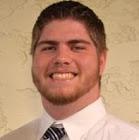
Joshua Geschke
Joshua Geschke is a third year Biomedical Engineering student from Riverview, Michigan. His professional interests include medical device research and development as well as their sales. Last summer, Joshua interned with Meridian Health Plan in their IT Security Department and helped identify opportunities and implement procedures to make Meridian’s IT Security policies more comprehensive.
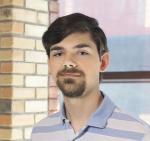
Dan Knenlein
Daniel Knenlein is a third year Computer Science student from Grand Rapids, Michigan. His professional interests include improving technical support through client studies and technician training. During the summer of 2016, Daniel interned with the Spectrum Health hospital network in their Information Services department.
days left
funded
last
What Your Donation Can Help Us Do:
- Project CURE: Donations will help to buy the Project CURE kits filled with $2000 worth of medical equipment.
- Women's Health Education: Donations will help to buy materials and educational models to help with the workshops.
- Water Access Project: Donations will assist in the method of delivery to provide an additional water source such as a well chosen by the team. All donations budgeted for this specific project will remain with the project until its completion.
- Raspberry Pi Project: Donations will assist in the method of delivery to provide an additional water source such as a well chosen by the team. All donations budgeted for this specific project will remain with the project until its completion.
- Children’s Health and STEM Education Project: Donations will assist the team with materials needed for an interactive learning experience for children in various villages.
$5 (0/500)
Personal Thank You Note.
$10+ (12/500)
Project Update During Travel
$100+ (6/500)
Postcard From Ghana
$500+ (2/50)
Cultural Souvenir From Ghana
Recent Donors
Some donors may be hidden.












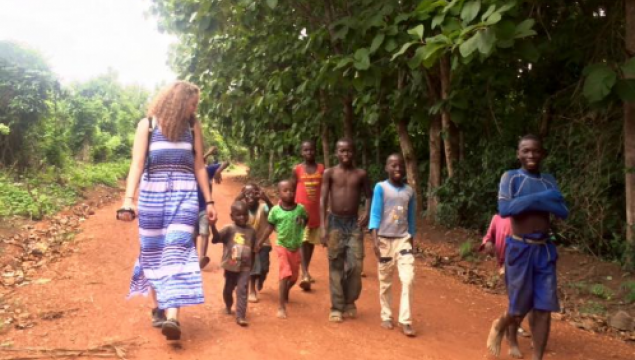
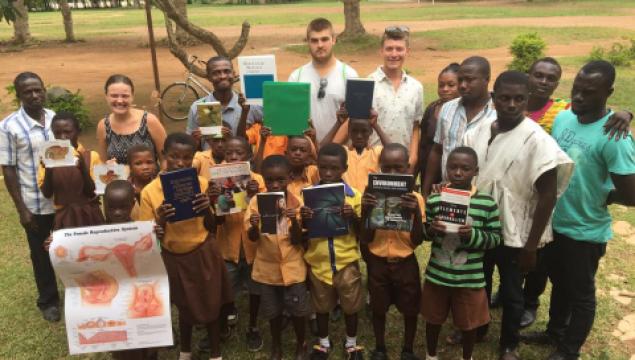
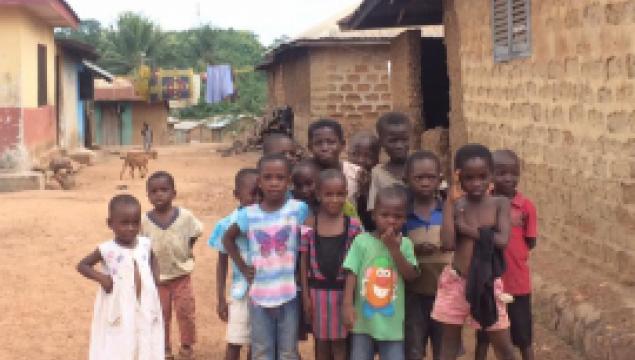
 Gifts to projects listed on SUPERIORIDEAS.ORG are received and processed by Michigan Tech Fund. Michigan Tech Fund is a tax-exempt organization under Section 501(c)(3) of the Internal Revenue Code acting on behalf of Michigan Technological University. It is the policy of Michigan Tech Fund that a portion of the gifts and/or income therefrom may be used to defray the costs of raising and administering the funds.
Gifts to projects listed on SUPERIORIDEAS.ORG are received and processed by Michigan Tech Fund. Michigan Tech Fund is a tax-exempt organization under Section 501(c)(3) of the Internal Revenue Code acting on behalf of Michigan Technological University. It is the policy of Michigan Tech Fund that a portion of the gifts and/or income therefrom may be used to defray the costs of raising and administering the funds.
Questions for the Researcher